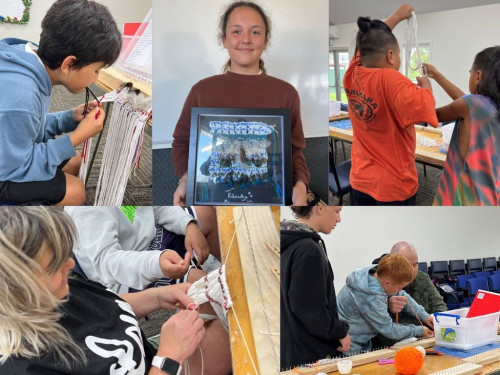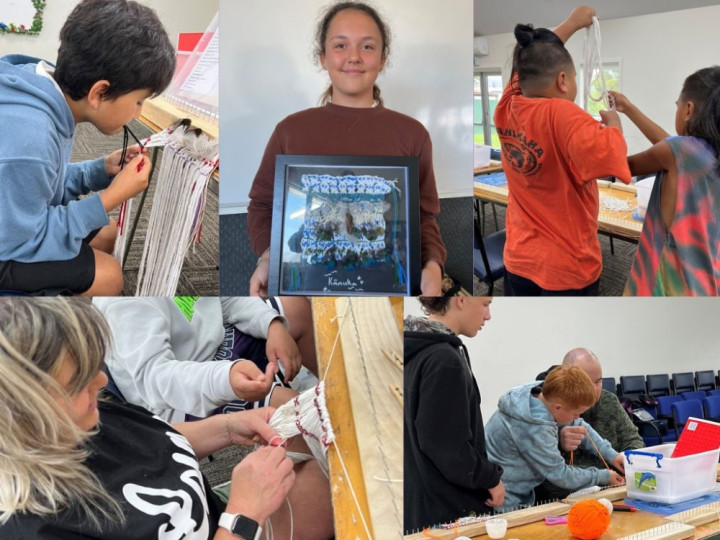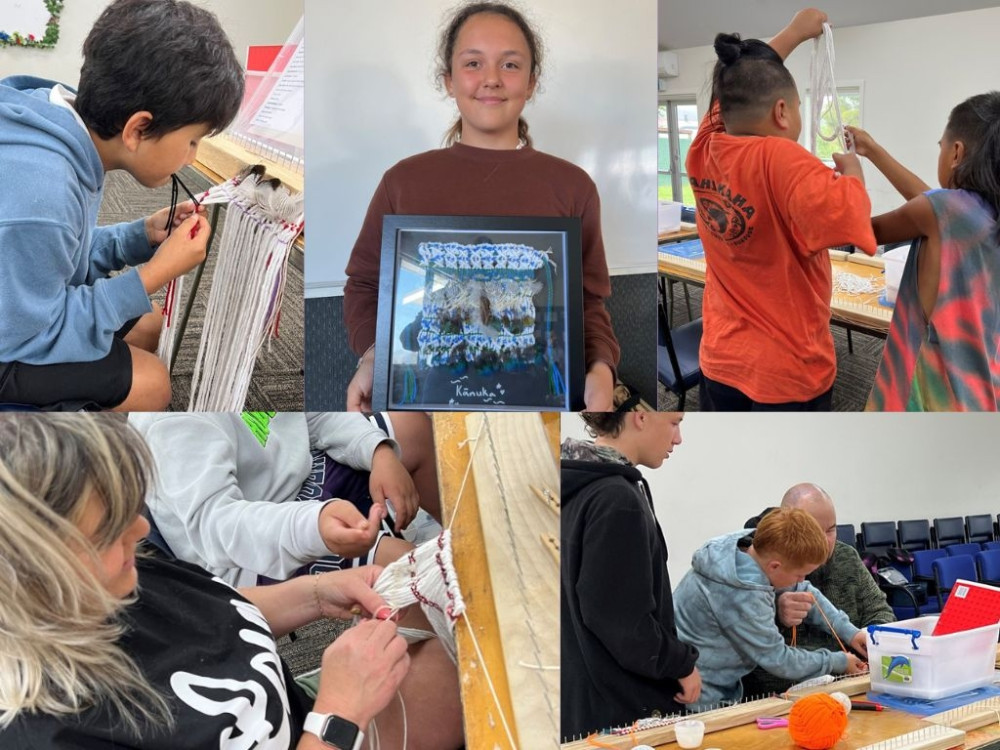A new generation of rangatahi are able to 'lose themselves' in the traditional weaving practice of whatu, in order to find pathways to better mental health through meditative moments and connections to tikanga and tūpuna.
He Kahu Kōrero is a ten-week programme in Hauraki for rangatahi of school years seven and eight and their whānau to learn about whatu and create whatu kākahu (garments) in a wider cultural context, delivered by Ngā Tūmanako Whitianga Charitable Trust with backbone support from Hauraki PHO, and supported by Te Aka Whai Ora.
The funding supports the revitalisation, expansion and practice of mātauranga Māori within a hauora context. Whatu is an artistic practice capable of providing a reflective thinking space as well as a healing practice.
He Kahu Kōrero lead facilitator Pounamu Ngauamo and her team of Wiremu Kauhou, Rachel Reid, Johnny Ngauamo and Cindy Williams have focused on three key outcomes for rangatahi.
“Firstly, to bring to life the stories told through whatu and the creation of whatu kākahu,” says Pounamu.
“Secondly, to promote the healing properties of whatu, which is often a meditative practice that provides a place of personal reflection and connection to tikanga and tūpuna – this is so important for rangatahi to understand their deeper connections to te ao Māori.
“Thirdly, and really importantly, to revitalise whatu, especially in the context of its maternal language.
“It's just so amazing to hear our rangatahi and whānau describe moments of 'losing themselves' in whatu, allowing memories, reflections and those 'a-ha!' moments to spring forth," says Pounamu.
Participants design their whatu kākahu for a special person or people. Their intentions are demonstrated by their creativity in the use of colours, attachments, māwhitiwhiti (crossover stitch) patterns and manu huruhuru (feathers) selection and placement.



Through the programme participants develop an understanding of flax working, distinguish the sections of rau harakeke (flax leaves), and share their knowledge of whatu and educate their whānau on wider tikanga through to the actual physical workings of whatu.
"Whānau report that their tamariki are coming home raving about whatu and look forward to 'whatu Fridays', and they're coming home more mauri tau – composed and serene – which surely whānau appreciate especially on a Friday!" laughs Pounamu.
Te Aka Whai Ora Maiaka Mātauranga DCE Mātauranga Māori, Kingi Kiriona says programmes like He Kahu Kōrero are important for rangatahi to learn new skills and mindfulness, helping centre them personally at an important stage of their development.
"The importance of the mind-body connection is under-appreciated in our modern world. By learning these skills, immersed in te reo and te ao Māori, rangatahi will learn more about their place in the world,” he says.